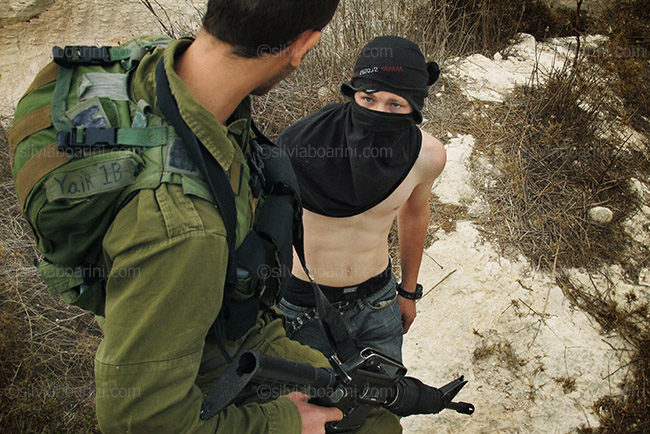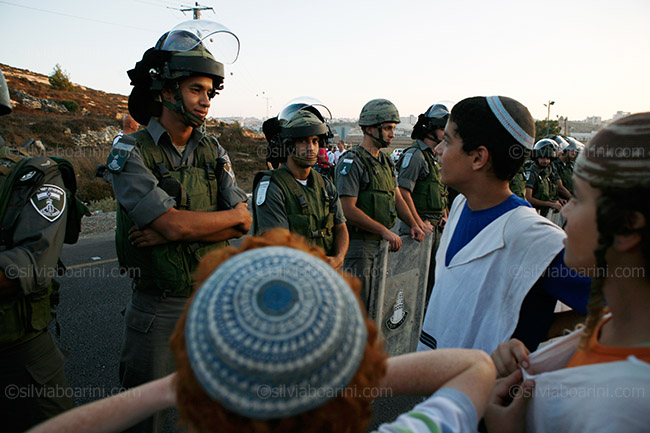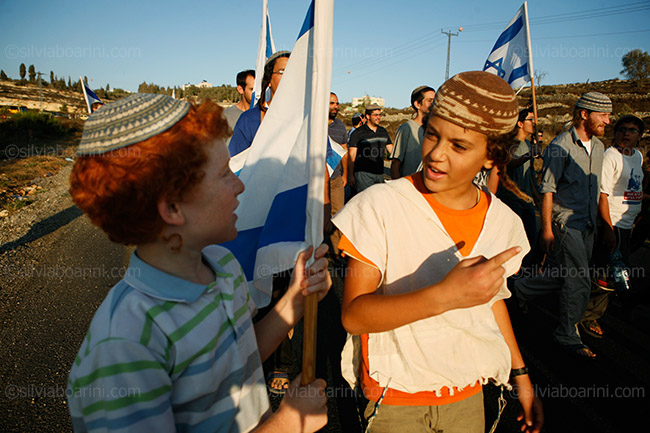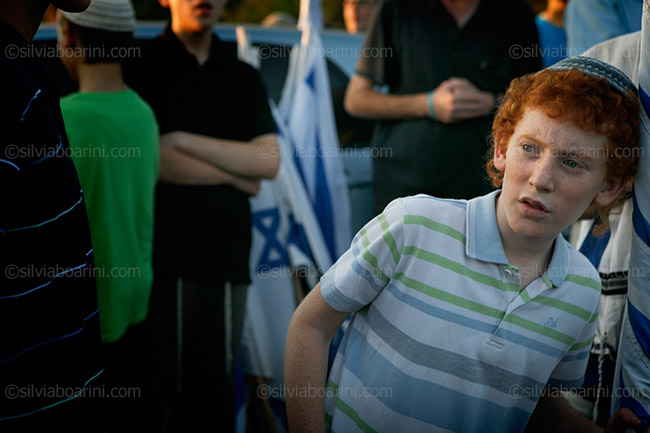My latest article for Middle East Eye looks at how Israel’s expansion of illegal settlements and legalisation of outposts is allowed to go on unchecked in the occupied West Bank and details its effect on nearby Palestinian villages. Here with extra gallery.
Here is the article I wrote for Middle East Eye. Click here to read it on the website.
Jerusalem – Kamal Farhan Abbad’s home sits at the edge of the West Bank Palestinian village of Jalud, near Nablus. The view from his window should include rolling hills, olive groves and cultivated lands; instead it mostly features the red-roofed homes and caravans of nearby illegal Israeli settlements.

Abbad’s home is Area C, the 60 percent of the West Bank under full and direct Israeli military control. It is home to 150,000 Palestinians who today are outnumbered by some 370,000 Israelis living in 237 settlements and outposts, which are deemed illegal according to international law.
These numbers, added to the metal mesh that protects the glass windows of Abbad’s house and the stones he says he keeps on the roof to throw back at the settlers when they come to attack, make this family home a bastion of resistance in the fight for sovereignty and control over land.
Abbad sits cross-legged on a thin foam mattress placed on the floor of his living room. He is in his 60s, and has six children and many grandchildren. He can remember a time when Jalud was a thriving village, when farmers would come and go from the land and when he could travel to the market in Nablus and stay away a whole day without wondering whether his family was safe.But as he puffs on his cigarette, he can also recall the day when all that changed. It began with an excavator.
“They came to open a road on the land over there,” he told Middle East Eye, remembering the year, around 1991, when workers began to establish Shvut Rachel, the outpost nearest to his home. “I went to have a look and the Israeli officials told me not to worry, that I wouldn’t be affected.”But only a few months later a bulldozer came back to destroy an old stone construction that Abbad had used to store his tools and sometimes keep his livestock.
“Then a caravan with the first settlers arrived,” he explained. “And soon after, another one.”At first Abbad still managed to cultivate some of the land he owns near the outpost but with time that too ended. Jalud farmers have collectively lost some 4,000 acres of agricultural land to settlers. Farming, shepherding and selling produce was the main source of income for many.
Loss of income and fear of attacks have already contributed to a drastic reduction in Jalud’s population from 1,000 in the mid ’90s to barely 600 today. “When you feel that the enemy is living next to you, that you are constantly under attack from settlers, how can you enjoy your life, how can you feel secure?” Abbad observed.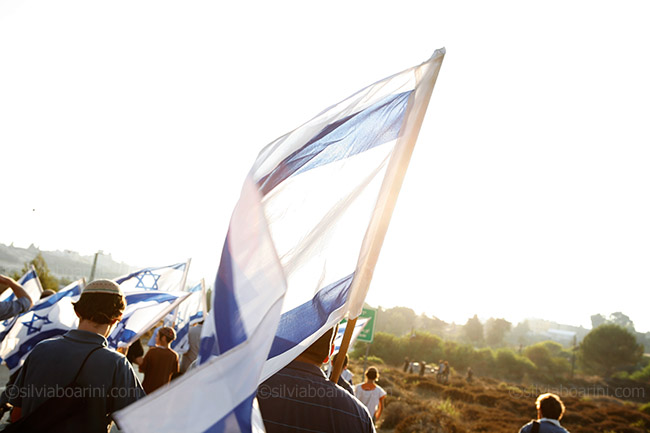
Reconstituting the illegal as ‘legal’
Shvut Rachel started out as an illegal outpost in 1991 and although isolated, it was “legalised” by the Israeli government in 2005 as a “neighbourhood” of the larger nearby settlement of Shilo.The international community considers all Israeli settlements illegal under international law. But Israel deems government-authorised settlements “legal” and only unauthorised outposts “illegal”.
There are 100 such outposts in the West Bank and as a recent report by Israeli human rights NGO Yesh Din shows, instead of evacuating them the state is finding new ways to legally and retroactively reconstitute them as “authorised”.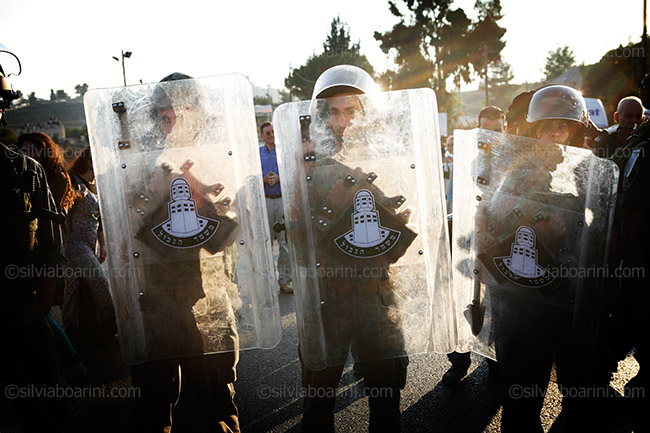 According to Yesh Din’s Under the Radar, already 25 illegal outposts have undergone this treatment. “We are seeing a dramatic change in Israel’s policy regarding legalisation,” Zvi Stahl, director of research at Yesh Din, told MEE.
According to Yesh Din’s Under the Radar, already 25 illegal outposts have undergone this treatment. “We are seeing a dramatic change in Israel’s policy regarding legalisation,” Zvi Stahl, director of research at Yesh Din, told MEE.
“It is a process that we are not sure will stop with the 25 outposts already legalised.”It was only 10 years ago that former head of the State Prosecution Criminal Department Talia Sasson reported on Unauthorised Outposts, denouncing the Civil Administration’s and other state bodies’ disregard for the rule of law in the establishment of new outposts, especially on private Palestinian land. Amongst her recommendations was the eviction of these outposts. Instead, the state commissioned a new report in 2011.
The Levy report concluded that the West Bank was not occupied as such, settlements are legal and outposts should be legalised.“Up until 2011 state policy was to legalise outposts on state land and evict those on private Palestinian land,” Stahl explained. Today, the state argues in favour of legalising all outposts. “This usually means transferring private Palestinian land into state ownership.”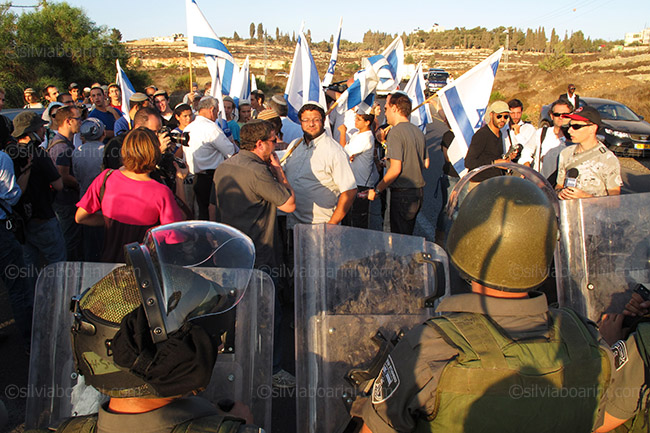
“Under the Guise of Legality“, a 2012 report by the Israeli human rights group B’Tselem, highlighted that Israel has been acquiring state land at a rate three times higher than the previous occupier, Jordan. It did so unlawfully and with an illegal motive, the report explains, since the establishment of settlements is in breach of international law.
Despite this, Tamar Asraf, spokesperson for the Mateh Binyamin Council, a West Bank settlement municipality with the largest number of outposts awaiting legalisation, and which includes Shvut Rachel, has no doubt that the same Israeli courts safeguarding her rights can also safeguard those of Palestinians living under occupation.
“Settlements only expand within an already approved perimeter. It is taken care of by the High Court to establish if any land belongs to Palestinians,” she told MEE. “This story of Jewish taking land from Palestinians has not been proven.”
As a new government is being formed, Stahl fears things might be about to get worse. One of the Israeli right-wing Jewish Home party’s demands to enter the governing coalition was renewed discussion of the “Outpost Bill,” she said.“The bill seeks to legalise outposts, even those on private land, by forcing Palestinians to get compensation and give up their land rights.”
The bill was rejected in 2012 when a small number of outposts were partially relocated to alternative sites, still in breach of international law.But with 75 outposts to deal with it in 2015, most of which – according to settlement watchdog Peace Now – are in part on private Palestinian land, the bill might find its way this time.
Selective blindness
Bashar Qaryuti, from the village of Qaryut next to Jalud, is spokesperson for the local committee against settlements. At 33, he has never known a West Bank without settlers and says he knows all too well what is behind the legalisation spree.
“Israel is trying to connect a total of 14 settlements in the north of the West Bank by legalising all the outposts in between,” he explained. “From the West, all the way to the Jordan Valley.”
This would create Jewish continuity and at the same time split countless Palestinian communities, lowering the chances of ever recovering territory for any viable future Palestinian state.
Just like Jalud, Qaryut too has lost some 3,750 acres to settlements, some of which to Shvut Rachel and Shilo. As the space for Palestinian villages shrinks and de-development runs its course, the nearby settlements seem to taunt them with their new homes, roads and archaeological parks.
“We recently found out that a new outpost is planned on our land, Ma’al Katorek,” Qaryuti said. “They want to build it opposite Shilo to cut us off completely from the main road.” The new outpost is planned despite there being already a number of pending eviction orders on existing settler units, Qaryuti explained.
“There is a court order for the dismantling of Ayuval outpost but it has not been implemented; there is one for Adei Ad but it’s also not been implemented.” The irony is, Qaryuti joked, that when a demolition order is issued for a Palestinian house it is implemented instantly.
Both Qaryuti and Abbad complain that their human rights do not stand much of a chance against the settlers. Palestinians can’t even enjoy the support of the Palestinian Authority (PA), which has no jurisdiction in Area C. Israeli settlers, they say, have a whole state behind them.
In this context, it is not surprising that Palestinians are grateful even only for the metal mesh placed on their windows and the walls built around their homes, which are amongst a handful of immediate solutions offered by funders such as the EU and implemented by international NGOs.
John Gatt-Rutter, head of the EU delegation in Jerusalem, is under no illusion that this is of much consequence. “There are a number of things that we are doing in Area C which do bring about some relief,” he told MEE. “But it is not the kind of transformative change that we need which is of course about the politics.”
But judging from the reality on the ground, a political solution is still not in sight. “There is a real ambition and desire on our part to do something,” Gatt-Rutter admitted. “The question is what and how and when and this is going to be the challenge obviously.” Little has changed since 1967.
It seems all Qaryuti and Abbad can expect is more international condemnation, “growing irritation in Brussels”, UN resolutions, freezes and a wealth of information that will be dutifully ignored. At least they are not the ones being fooled. They know exactly what a 33 percent increase in construction of housing units in settlements since 2011 spells for them. And that word doesn’t read “peace”.
